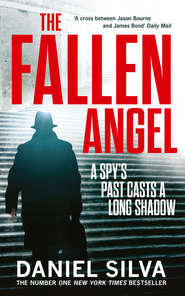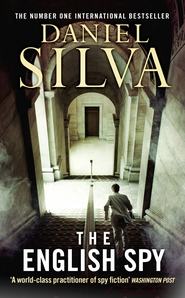По всем вопросам обращайтесь на: info@litportal.ru
(©) 2003-2024.
✖
The Heist
Настройки чтения
Размер шрифта
Высота строк
Поля
“I haven’t a clue.”
“Are you telling me the truth this time?”
The general placed his good hand over his heart. “I do not know the identity of the person who’s been buying every piece of stolen art he can lay his hands on. Nor do I know who’s behind the murder of Jack Bradshaw.” He paused, then added, “Though I suspect they’re one and the same.”
“Why was Bradshaw killed?”
“I suppose he’d outlived his usefulness.”
“Because he’d delivered the Caravaggio?”
The general gave a noncommittal nod.
“So why was he tortured first?”
“Perhaps his killers wanted a name.”
“Yves Morel?”
“Bradshaw must have used Morel to knock the painting into shape so it could be sold.” He looked at Gabriel gravely and asked, “How did they kill him?”
“They broke his neck. It looked like a complete transection of the spinal cord.”
The general grimaced. “Silent and bloodless.”
“And very professional.”
“What did you do with the poor devil?”
“He’ll be taken care of,” said Gabriel quietly.
“By whom?”
“It’s better if you don’t know the details.”
The general shook his head slowly. He was now a party to a felony. It wasn’t the first time.
“Let us hope,” he said after a moment, “that the French police never discover that you were in Morel’s apartment. Given your track record, they might get the wrong impression.”
“Yes,” said Gabriel morosely. “Let us hope.”
They turned into the Via Roma. It reverberated with the buzz of a hundred motor scooters. Gabriel, when he spoke again, had to raise his voice to be heard.
“Who had it last?” he asked.
“The Caravaggio?”
Gabriel nodded.
“Even I’m not sure,” the general admitted. “Every time we arrest a mafioso, no matter how insignificant, he offers us information on the whereabouts of the Nativity in exchange for a reduced prison sentence. We call it the Caravaggio card. Needless to say, we’ve wasted countless man-hours chasing down false leads.”
“I thought you came close to finding it a couple of years ago.”
“So did I, but it slipped through my fingers. I was beginning to think that I would never get another opportunity to recover it.” He smiled in spite of himself. “And now this.”
“If the painting’s been sold, it’s probably no longer in Italy.”
“I concur. But in my experience,” the general added, “the best time to find a stolen painting is immediately after it’s changed hands. We have to move quickly, though. Otherwise, we might have to wait another forty-five years.”
“We?”
The general stopped walking but said nothing.
“My involvement in this affair,” said Gabriel over the drone of the traffic, “is now officially over.”
“You promised to find out who killed Jack Bradshaw in exchange for keeping your friend’s name out of the newspapers. The way I see it, you haven’t completed your commission.”
“I’ve given you an important lead, not to mention three stolen paintings.”
“But not the painting I want.” The general removed his sunglasses and fixed Gabriel with his monocular stare. “Your involvement in this case isn’t over, Allon. In fact, it’s just beginning.”
They walked to a small bar overlooking the marina. It was empty except for two young men who were grousing about the sad state of the economy. It was a common sight in Italy these days. There were no jobs, no prospects, no future—only the beautiful reminders of the past that the general and his team at the Art Squad were sworn to protect. He ordered a coffee and a sandwich and led Gabriel to a table outside in the cold sunlight.
“Frankly,” he said when they were alone again, “I don’t know how you can even think about walking away from the case now. It would be like leaving a painting unfinished.”
“My unfinished painting is in Venice,” replied Gabriel, “along with my pregnant wife.”
“Your Veronese is safe. And so is your wife.”
Gabriel looked at an overflowing rubbish bin at the edge of the marina and shook his head. The ancient Romans had invented central heating, but somewhere along the line their descendants had forgotten how to take out the trash.
“It could take months to find that painting,” he said.
“We don’t have months. I’d say we have a few weeks at most.”
“Then I suppose you and your men better get moving.”
The general shook his head slowly. “We’re good at tapping phones and making deals with mafioso scum. But we don’t do undercover operations well, especially outside Italy. I need someone to toss some bait into the waters of the stolen art market and to see if we can tempt Mr. Big into making another acquisition. He’s out there somewhere. You just have to find something to interest him.”
“One doesn’t find multimillion-dollar masterpieces. One steals them.”
“In spectacular fashion,” added the general. “Which means it shouldn’t be something from a home or a private gallery.”
“Do you realize what you’re saying?”
“Yes, I do.” The general gave a conspiratorial smile. “Most undercover operations involve sending a fake buyer into the field. But yours will be different. You’ll be posing as a thief with a hot piece of canvas to sell. The painting has to be real.”
“Why don’t you let me borrow something lovely from the Galleria Borghese?”











